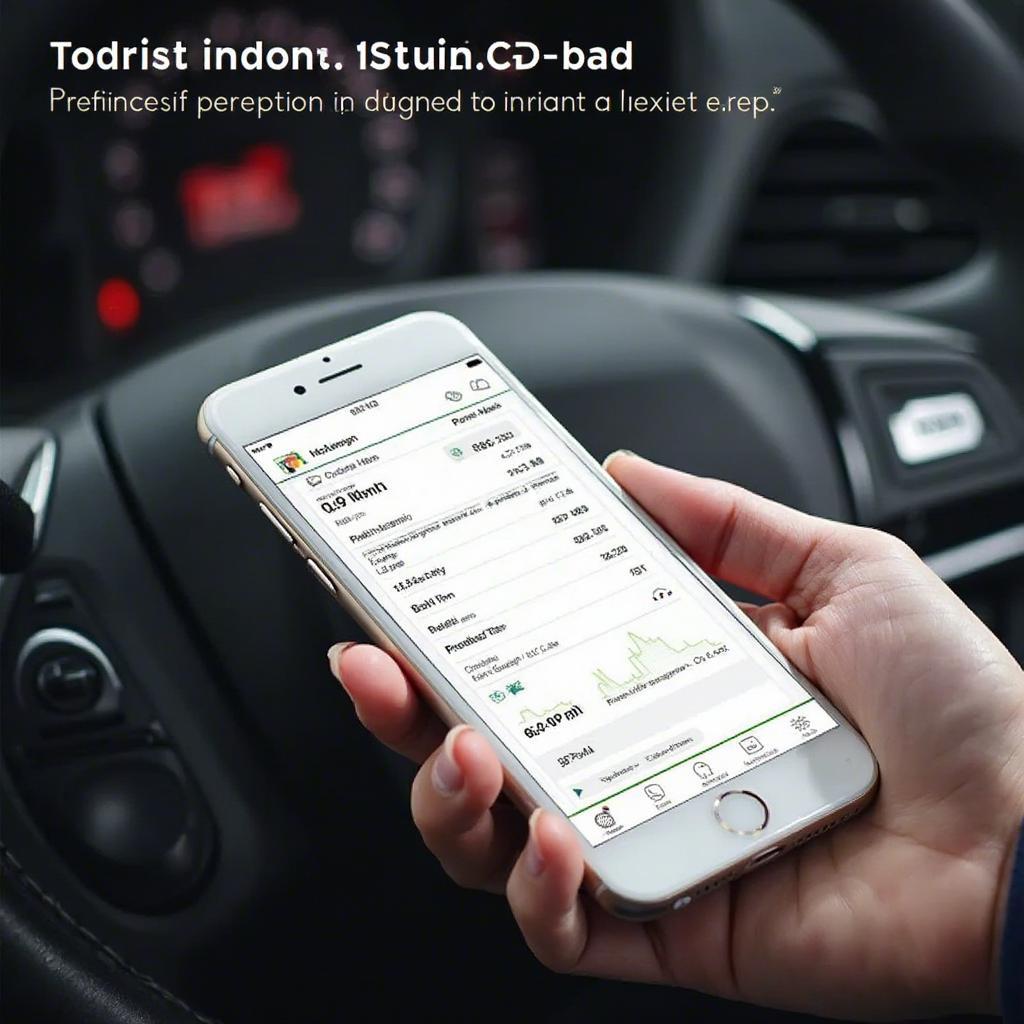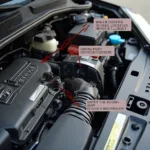Understanding your car’s health has never been easier than with an OBD2 scanner. These handy devices plug into your vehicle’s OBD2 port, providing a wealth of information about your engine’s performance, potential issues, and even your driving habits. But with so many OBD2 scanners available, finding one compatible with your car is essential. This guide will navigate the world of OBD2 scanner car compatibility, ensuring you find the perfect device to keep your ride running smoothly.
What is OBD2 Compatibility and Why Does it Matter?
OBD2, or On-Board Diagnostics, is a standardized system implemented in most cars manufactured after 1996. While the OBD2 port is standardized, the protocols and information accessed can vary between makes, models, and even specific model years.
Choosing an OBD2 scanner compatible with your car ensures:
- Accurate Data Retrieval: The scanner can communicate effectively with your car’s computer, providing precise diagnostic information.
- Access to All Systems: A compatible scanner can read data from various systems in your vehicle, not just the engine, including transmission, ABS, airbags, and more.
- Advanced Features: Some scanners offer manufacturer-specific codes and functionalities, but these are only accessible with compatible devices.
Decoding OBD2 Protocols: The Key to Compatibility
OBD2 compatibility hinges on communication protocols, the languages your car and scanner use to talk to each other. Here are the most common protocols:
- SAE J1850 PWM/VPW: Commonly found in older Ford, GM, and Chrysler vehicles.
- ISO 9141-2: Frequently used in European and Asian vehicles, particularly older models.
- ISO 14230-4 (KWP2000): Often found in vehicles from Mazda, Hyundai, and Kia.
- ISO 15765-4 (CAN): The most common protocol in modern vehicles, generally used in cars manufactured after 2008.
Expert Insight: “Don’t assume your 2009 car uses CAN just because it was manufactured after 2008. Always verify the protocols before purchasing a scanner.” – David Miller, Automotive Diagnostics Engineer
Factors Affecting OBD2 Scanner Car Compatibility:
While the manufacturing year offers a general guideline, several factors influence compatibility:
- Vehicle Make and Model: Different manufacturers may utilize specific protocols even within the same year range.
- Geographical Location: Vehicles sold in different regions might use different protocols due to varying emission standards.
- Engine Type: Gasoline and diesel engines often employ different protocols.
- Specific Vehicle Features: Advanced safety features or hybrid technology might require specific protocols.
Finding the Right OBD2 Scanner:
- Check Your Owner’s Manual: Your car’s manual often lists the supported OBD2 protocols.
- Online Compatibility Checkers: Many OBD2 scanner manufacturers provide online tools or charts to check compatibility.
- Contact the Manufacturer: If unsure, reach out to the scanner manufacturer or your car dealership for confirmation.
Beyond Basic Compatibility: Features to Consider
Once you’ve narrowed down compatible scanners, consider these features:
- Display: Choose between code readers with basic displays or scanners with larger screens for live data.
- Functionality: Decide if you need basic code reading or advanced features like ABS bleeding, airbag reset, or battery registration.
- Connectivity: Some scanners offer Bluetooth connectivity, enabling data logging and interaction with smartphone apps.
 OBD2 Scanner Smartphone App
OBD2 Scanner Smartphone App
Expert Insight: “A Bluetooth-enabled OBD2 scanner with a companion app offers a user-friendly interface and powerful data analysis capabilities.” – Sarah Jones, Automotive Technology Consultant
Conclusion: Drive with Confidence
Finding a compatible OBD2 scanner empowers you to take control of your car’s health, enabling you to diagnose issues, monitor performance, and make informed decisions about your vehicle’s maintenance. By understanding the nuances of OBD2 compatibility, you can choose the right tool for your car and enjoy a smoother, more confident driving experience.
Frequently Asked Questions:
Q: Will any OBD2 scanner work on my car?
A: No, compatibility depends on the protocols your car uses. Consult your owner’s manual or use an online compatibility checker.
Q: Can I use an OBD2 scanner designed for diesel engines on a gasoline car?
A: It’s not recommended. While the port is the same, the protocols and data interpretations might differ.
Q: My OBD2 scanner is showing “No Communication.” What should I do?
A: Ensure the scanner is properly connected, the ignition is on, and check for any blown fuses related to the OBD2 port.
Q: Can I use an OBD2 scanner to program a new key fob?
A: Some advanced scanners offer key fob programming, but this varies depending on the make and model of your vehicle.
Q: Are OBD2 scanners only useful for professional mechanics?
A: No, many user-friendly scanners are available for car enthusiasts of all levels.
For more insights on OBD2 scanners, explore our other informative articles:
Do you need assistance choosing the right OBD2 scanner for your car? Contact us via WhatsApp at +1(641)206-8880 or email us at [email protected]. Our 24/7 customer support team is always ready to help!
